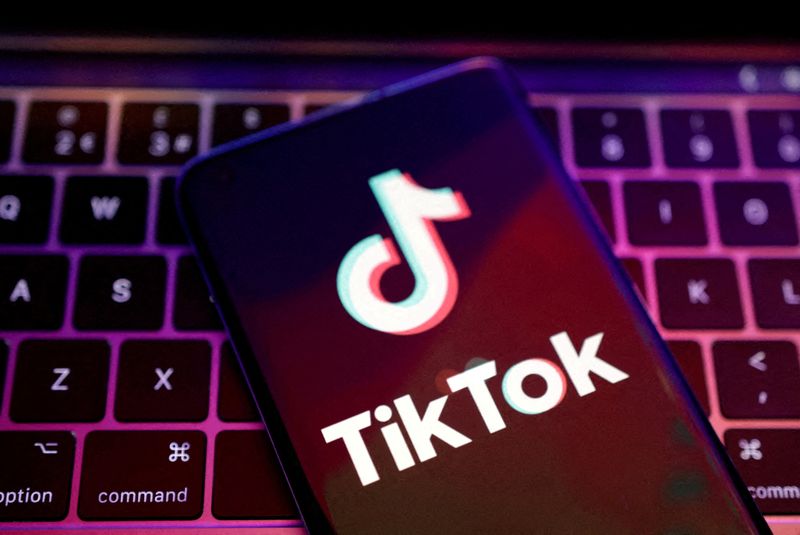By Mike Scarcella
(Reuters) - The U.S. government set up a likely court showdown over the scope of TikTok's free speech protections under the U.S. Constitution after President Joe Biden signed legislation on Wednesday to ban the social media platform from app stores unless its Chinese owner sells it.
While the bill itself does not say anything about speech, the measure has alarmed civil rights advocates, TikTok and users of the app who could all sue to block it.
TikTok has denied sharing U.S. user data. Its chief executive said on Wednesday the company would defeat the legislation in court.
Legal experts said opponents of the law could argue it infringes on free speech by preventing users from expressing themselves and businesses from using the app to promote products.
TikTok has already beaten a similar attempt to ban its use in Montana, although the U.S. state is appealing that ruling.
Jameel Jaffer, executive director of the Knight First Amendment Institute, called the U.S. legislative effort "censorship — plain and simple" in a letter that his group and others sent to lawmakers in March.
A court that agrees with that assessment would apply strict scrutiny, meaning the government would have to prove it has not violated speech rights under the Constitution's First Amendment and that there are no lesser ways to achieve the government's national security goals.
The bill's promoters have argued it has nothing to do with speech but merely regulates a commercial activity by requiring TikTok's Beijing-based owner ByteDance to sell the U.S. operations within about a year, denying China easy access to users' data.
The legislation, which cleared the Senate with broad support on Tuesday, sets the U.S. Court of Appeals for the D.C. Circuit as the venue for any legal challenges. TikTok could ask the court to preliminarily bar enforcement of the law while it pursues a case contending the measure is unlawful and should be struck down.
Legal experts said if the government winds up fighting a First Amendment case under the strict scrutiny standard, it must prove national security or some other compelling government interest is at stake. It will also have to prove the law was "narrowly tailored" to address that particular issue.
Critics spot a weakness in the government's potential case on this point: Washington thus far has seemed unconcerned about abuse of users' data by other social media platforms.
Plenty of companies such as Meta Platforms (NASDAQ:META)' Facebook collect, store and share users' data, but the government has never treated that activity as a national security threat or enacted data protections.
The Electronic Frontier Foundation's David Greene said that if the U.S. were really concerned about China and data privacy, it would push legislation that applies to all social media companies, not just TikTok.
The government would need to convince a court the measure is not a limitation on speech but a regulation of a commercial transaction and a way to protect national security.
The government would argue that TikTok could continue to operate and U.S. users continue to use it, just not under Chinese ownership, so the law's effect on speech was "incidental" and permitted.
In November, a U.S. federal judge in Montana blocked the state's effort to ban TikTok within its borders. TikTok and some users filed a pair of First Amendment lawsuits challenging the proposed ban, which had been set to take effect in January.
U.S. District Judge Donald Molloy issued a preliminary injunction halting the state's ban, saying it "violates the Constitution in more ways than one" and "oversteps state power." Montana, backed by Virginia and 18 other states, is challenging the order on appeal.
"The law is not narrowly tailored, nor does it leave open any alternative channels for targeted communication of information," Molloy wrote.
TikTok is due to respond to the Montana appeal by April 29.
